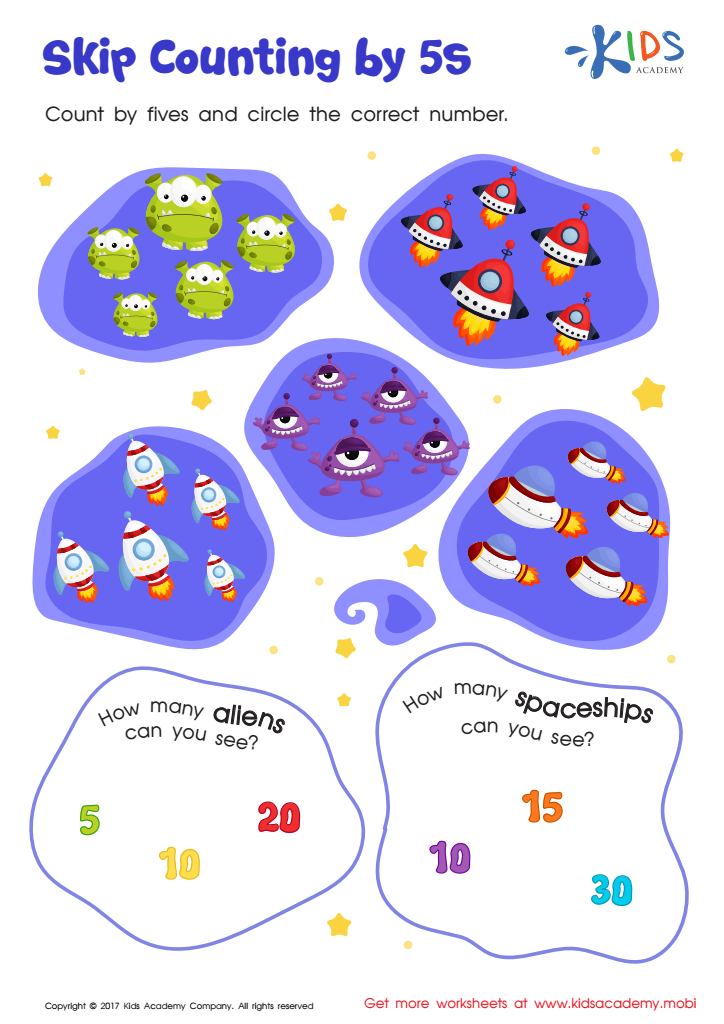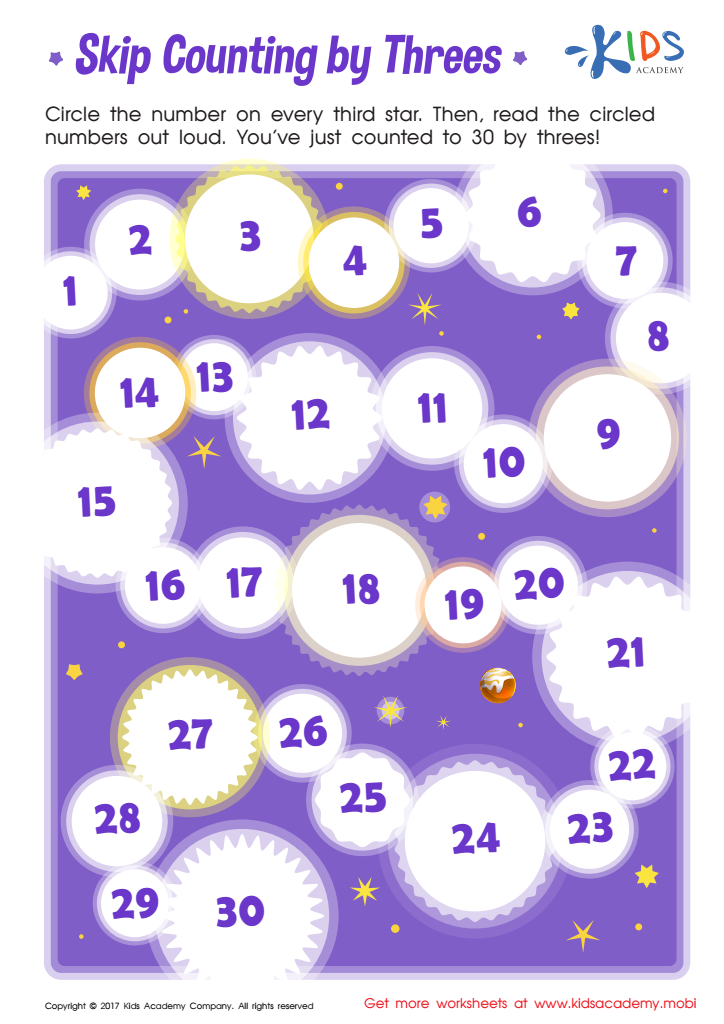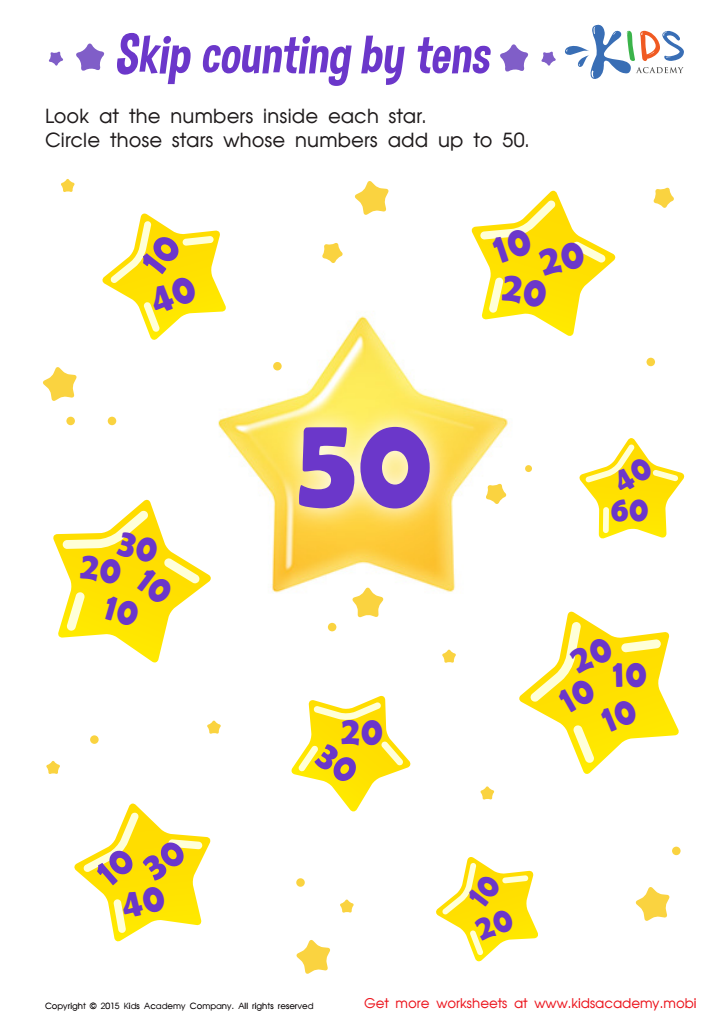Understanding skip-counting Numbers up to 100 Worksheets for Ages 3-6
3 filtered results
-
From - To
Discover our engaging "Understanding Skip-Counting Numbers up to 100" worksheets, designed specifically for children ages 3-6. These fun and interactive activities introduce young learners to the concept of skip counting, enhancing their number sense and laying a solid foundation for future math skills. With a variety of colorful illustrations and easy-to-follow exercises, kids will joyfully practice counting by 2s, 5s, and 10s, helping to develop their ability to recognize numerical patterns. Perfect for homeschooling or supplementary learning, our worksheets make mastering this essential math skill both enjoyable and educational. Encourage a love for learning with our thoughtfully crafted materials!


Skip Counting by 5s: Aliens and Spaceships Printable


Skip Counting By Three Printable


Learn Dozens: Skip Counting by Tens Printable
Understanding skip-counting is crucial for children aged 3-6 as it lays a foundational understanding of mathematics that extends beyond simple counting. First, skip-counting teaches children the relationships between numbers, helping them recognize patterns, which is essential for advancing in math concepts like addition, subtraction, and even multiplication later on. For example, counting by twos helps children see how even numbers are structured, while counting by fives or tens introduces them to grouping, promoting mental math skills.
Moreover, skip-counting fosters cognitive development. It encourages logical thinking and problem-solving as children learn to anticipate patterns and visualize numbers. This skill not only prepares them for future academic success but also enhances their confidence in tackling more complex mathematical ideas.
Additionally, incorporating skip-counting into everyday activities makes learning engaging and fun. Parents and teachers can create games that include skip-counting during playtime or routines, making it relatable and enjoyable for young learners. Ultimately, understanding skip-counting equips children with essential skills that build a strong mathematics foundation, contributes to their overall cognitive development, and instills a love for learning, which is vital during these critical early years.
 Assign to My Students
Assign to My Students
















